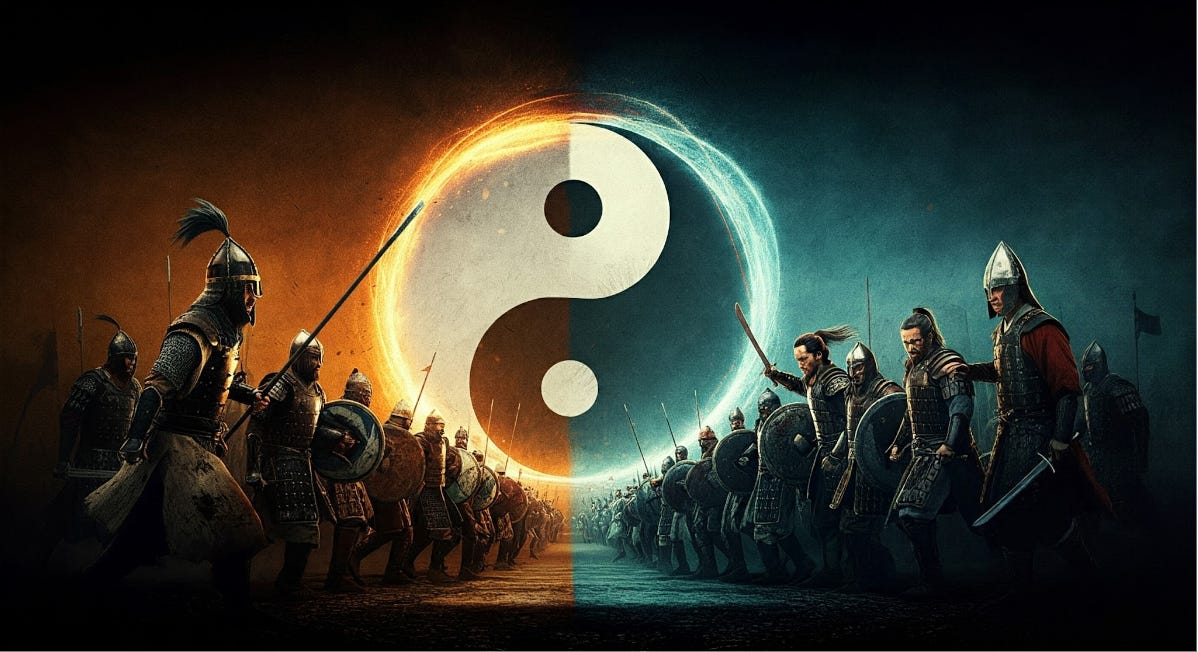The race to conversational, multi-modal, personalized search
The winner-take-most war over the future of search
Search dominance over the next decade - and the trillions in annual revenue it represents - is up for grabs for the first time in a quarter century.
The battle is being waged, and will likely be won, by members of one of two camps1:
Incumbent search engine providers (Google, Microsoft, DuckDuckGo, Brave, Baidu, Yandex)
AI companies entering the search space (OpenAI, Perplexity, Anthropic, Arc)
The holy grail of search
To the extent general search is still the dominant paradigm and user expectation, and even if successful vertical search offerings start to take root2, search will look considerably different than it does today. On top of an efficient global infrastructure stack (intent understanding, scraped open web content, licensed content feeds, retrieval, ranking, synthesis, and serving), hybrid monetization models, and state of the art UX, search will be:
Conversational (i.e. ‘multi-turn’ in AI speak)
Multi-modal (both for inputs and outputs)
Personalized (reflective of both implicit and explicit interests, as well as user- and use-case-specific memory profiles and system prompts)
Strengths & challenges
To succeed, each group must harness their unique strengths and quickly and boldly overcome their considerable and distinct challenges, namely:
Incumbents:
Strengths: 1) infrastructure-enabled cost advantages, 2) access to fresh authoritative content and essential data rights, 3) content understanding and ranking capabilities, 4) user understanding and interest matching, 5) multilingual and internationalization capabilities, 6) distribution (both installed base and access to new and repurposed consumptions channels), and 7) appreciation of the long tail (including the value unlocked by understanding the long tail of query intent and the value eroded by the challenge of mitigating the long tail of risk and abuse at scale).
Challenges: 1) the pace of business model evolution, 2) the pace of UX evolution, and 3) relationship with and perceived obligations to content ecosystems (particularly the open web and publishers).
AI new entrants:
Strengths: the inverse (i.e. the incumbent challenges)
Challenges: the inverse (i.e. the incumbent strengths)
Who will win?
What you need to believe to make the case for either side3:
An incumbent: 1) rapid self-disruption is possible (i.e. radical change to established business model, UX, and GTM happen and are effective), 2) verticalization of search takes longer than expected (i.e. most consumers continue to start their journeys from a single domain/user interface, they don’t first sort based on the job to be done), 3) major structural changes or operating constraints aren’t imposed by regulatory, privacy or competition authorities impacting their ability to cost-effectively acquire content and essential data rights, personalize, or distribute services.
An AI new entrant: 1) runway can be extended (without significant cross-subsidization of their enterprise businesses, it could take over a decade for the unit economics of a scaled consumer businesses to pencil out), 2) cost parity can be achieved in short order without sacrificing quality (willingness to pay is unlikely to increase on an order of magnitude regardless of how much more useful these services become, while the cost to serve these increasingly more robust and complex needs at scale is), 3) material ad revenues can be achieved without sacrificing user satisfaction or trust, or compromising the cost parity imperative.
Don’t confuse winning a battle for winning the war. Things are just starting to heat up.
P.S. I’m sure I’ve missed a lot. Look forward to learning about my blind spots and hearing your thoughts in the comments.
I don’t see new entrants (say Apple or Meta) winning organically here without significant capability or corporate acquisitions, and I’m excluding enterprise first providers (Glean, Cohere etc.) from this analysis.
Some of the more discrete user needs currently met by the general search bundle include: 1) learning (i.e. knowledge acquisition where epistemic consensus exists), 2) sense-making (where no right answer exists), 3) discovery/inspiration, and 4) taking action (i.e. buy, book, transact or create in some way - this could evolve into agentic search integrated into personal knowledge management and productivity suites).
An underlying assumption influencing the overall framing here is that search - both general and verticalized - tend towards monopolistic or oligopolistic dominance by very few players.




I certainly agree this shift is coming, and who wins (which companies) is a trillion-dollar question.
But even larger, to me, is this: with the loss of website visits to support any business model for information producers, and with the replacement of a trusted/secure URL model with a personalized, conversational black box LLM (with a history of convincing fabrications), what will this mean for the world? When "truth" about the outside world is whatever the LLM whispers in our ear, we're living in the matrix....